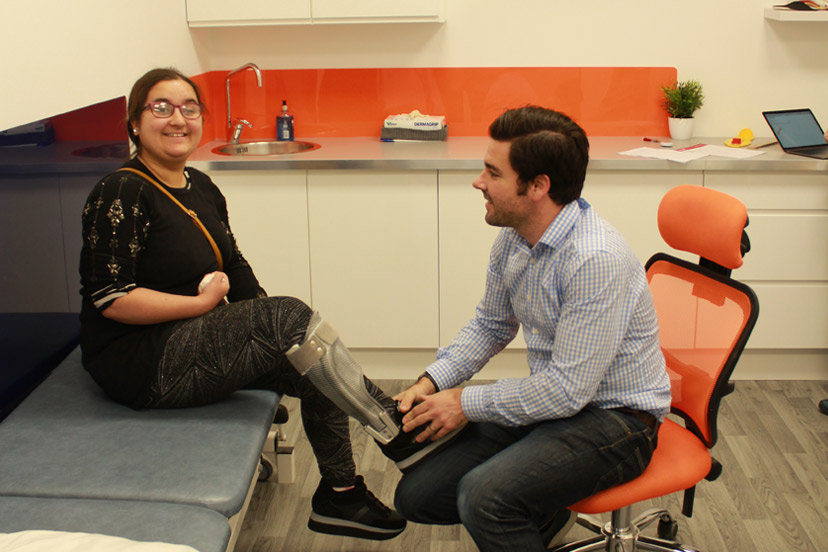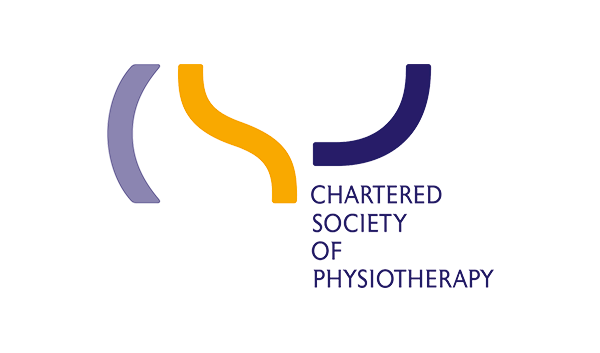The London Orthotic Consultancy (LOC) is already recognised and referred to by a considerable number of Case Managers.
LOC can help if you have any clients with the following conditions:
LOC is passionate about orthotics and their capabilities to improve lives. The last five years have seen tremendous improvements in orthotic design. The advent of carbon fibre has allowed the creation of a new range of orthoses that are lighter and less bulky but also stronger than traditional makes. Weight reduction has an immediate positive clinical impact.
Our approach to the assessment of new patients is a holistic one, we look beyond the most obvious symptoms to investigate anything that is having an impact on the well-being of each individual so that we can provide a total package of care that will optimise rehabilitation.
We are fortunate to have gait laboratories in our Kingston, Manchester and Cambridge clinics. These video vector facilities provide us with the capabilities to assess, prescribe and fine-tune our bespoke orthotics for the most complex conditions. They also provide an objective measurement of the progress being made over time and allow for minute adjustments to be made to the prescription.
We are committed to providing long term care to your clients so that you do not need to worry about them. So as a standard we will always adjust orthotics post fitting if your client feels that they are not quite right.

Director and lead orthotist Sam Walmsley was recently invited to speak to members of PPIPS (Paediatric Physiotherapists in Private Practice) about how LOC uses the OSKAR process to optimise its orthotic treatments for children with conditions like cerebral palsy. The PPIPS committee has kindly allowed us to share the video of Sam’s presentation to them.
At just over an hour long, it provides a succinct summary of OSKAR backed up by many patient case studies of how we use it to assess our patients, work out the correct prescription for the orthotics and then fine-tune them in our video vector gait lab.
The presentation is introduced by a member of the PPIPS committee, Gomz Murugesan, who specialises exclusively in the field of neurology and musculoskeletal conditions.
If you would like to find out more about LOC or receive a detailed quotation on behalf of one of your clients, we have a dedicated member of our team – Ana – who will ensure your enquiry is dealt with speedily and efficiently. You may also wish to speak to one of our senior clinicians about one of your clients before beginning the referral process; Ana will arrange this for you.
Please fill in out a contact form or, if you prefer, phone 020 8974 9989 and ask to speak to Ana.

We have the following facilities and amenities at our Kingston Upon Thames location:
We also have the Gait Laboratory for orthotics patients and Onsite Manufacturing for speedy turnarounds and adjustments whilst you wait.
We have the following facilities and amenities at our Cambridge location:
We have the following facilities and amenities at our Bristol location:
For more information, visit Litfield House Medical Centre.
We have the following facilities and amenities at our Romford location:
Parking:
There is NO parking directly outside the clinic. These spaces are reserved for residents.
The nearest parking can be found at Billet Lane public pay & display opposite Queens Theatre, a 2-minute walk from the clinic.
Click here for more information about Best Health Clinic
LOC’s clinic is based in the University of Salford’s Podiatry Department and provides treatments for orthotics, scoliosis, pectus deformities, positional plagiocephaly and club foot.
It is also the base for LOC’s northern OSKAR clinic which is run by Sam Walmsley, clinical director of LOC, in conjunction with Elaine Owen MBE MSc SRP MCSP.
Due to COVID-19, we have had to temporarily close the Salford clinic and are operating out of another clinic in Bolton.
508 Blackburn Rd,
Astley Bridge,
Bolton
BL1 8NW
For more information, please visit The Good Health Centre

Join The London Orthotic Consultancy in celebrating Cerebral Palsy Awareness Day on March 25th. Learn just how important expert orthotic care is in enhancing mobility, independence, and quality of life for children and adults with cerebral palsy.

Introducing the Agilik™ smart orthosis, a cutting-edge, powered knee orthotic now available in the UK through the London Orthotic Consultancy. Unlike traditional KAFOs or heavy exoskeletons, the Agilik™ provides dynamic knee assistance and offers real-time support, reducing fatigue and improving posture. This pioneering, modern technology can help children and adults with lower limb weakness walk more efficiently and naturally. We are honoured to be selected as the exclusive paediatric specialist centre in the UK for the Agilik™ device.

When Sophie noticed her baby Max had a persistent flat spot on his head, she was told it would resolve naturally—but it didn’t. Seeking a second opinion led her to the London Orthotic Consultancy, where Max was diagnosed with severe plagiocephaly.

A little more than four years after the LOCband Lite's launch, we're proud to have successfully treated our 250th helmet therapy patient at our Romford clinic using our cutting-edge 3D-printed cranial band. After five months of treatment, her final scan showed that her asymmetry had decreased from 12 mm to 3 mm.

Sky News published an article this month quoting scientists at Southmead Hospital who claimed there was a lack of research into flat head syndrome and its treatment with cranial remoulding (helmet) therapy. This is our response.

With our non-surgical treatment plan, Alex achieved 100% chest correction in just two years. His treatment involved a combination of dynamic chest compressor and vacuum bell therapy treatment to address his pectus excavatum and rib flaring.

Learn how a custom carbon fibre AFO helped Gill regain mobility and comfort despite complex challenges from shin bone (tibia) removal. We created a truly tailored orthotic solution made from pre-preg carbon fibre at our Cambridge clinic.

Discover how bespoke orthotics and the OSKAR program with Elaine Owen transformed Archie’s life with cerebral palsy quadriplegia, helping him avoid a wheelchair and achieve greater mobility.